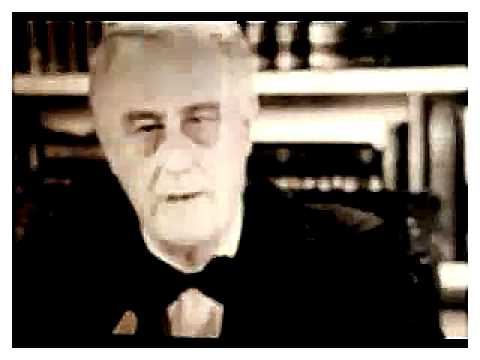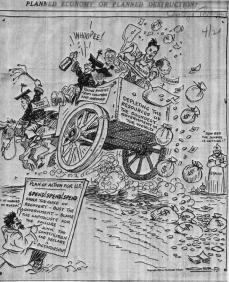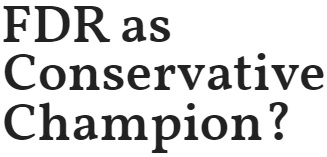Starting with a column about government-subsidized debt and ending yesterday with a column about why government shouldn’t own airlines, I’ve written about coronavirus-related issues for 14 straight days. And since that’s the topic now dominating the national discussion, I expect many more coronavirus-themed columns will be forthcoming.
But I’m going to make a detour to normalcy today and write about the person who is probably America’s second-worst president in terms of economic policy.
No, I’m not talking about Barack Obama or George W. Bush. Or even Herbert Hoover.
That’s a list of bad presidents, to be sure, but none of them are in the same league as Franklin Delano Roosevelt.
As I’ve explained before, FDR deserves scorn for doubling down on Hoover’s awful policies of higher taxes, increased spending, and more intervention – thus keeping the economy mired in misery all through the 1930s.
Amazingly, some people applaud his performance. Including some self-described conservatives.
Conrad Black, in an article for American Greatness, actually wants readers to think of FDR as a conservative.
My motive is…to correct the widespread misperception of Roosevelt as a socialist and somehow the person responsible for the present leviathan-state. …Roosevelt wanted to make America safe for wealthy people like himself. …he wanted a contented working-class and agrarian class, as he thought equitable in a rich country, and the only assurance against social instability. …retroactive quarterbacks have never suggested any serious alternatives to what Roosevelt did and no significant part of his domestic legislation has been seriously altered… When it comes to long-term social and economic policy, Roosevelt gets a solid B-plus. …Roosevelt acknowledged that the New Deal would, and did, make many mistakes, but it saved the country.
Saved the country?!? According to academic experts, the New Deal lengthened and deepened the downturn.
Why? Because FDR adopted so many bad policies. For instance, increased the top tax rate to 79 percent (and fortunately failed in his effort to impose a 100 percent tax rate). He cartelized the economy based on fascist economic principles. And he doubled the burden of federal spending in just eight years.
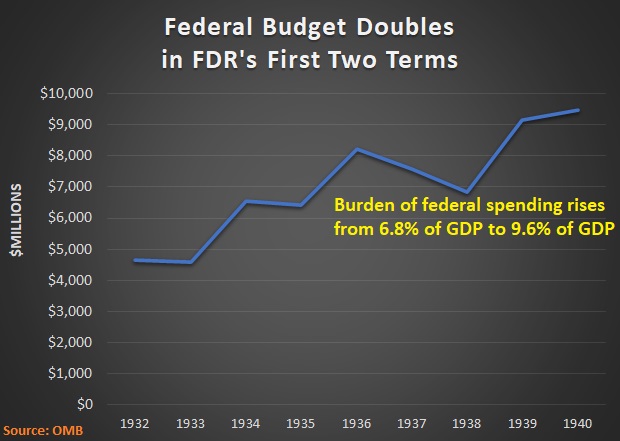
I’ll discuss more about FDR’s policy mistakes at the end of this column, but I also want to address his upside-down view of freedom.
He wanted to replace the Founding Fathers’ vision of “negative liberty” (the right to be left alone) with the redistributionst concept of “positive liberty” (the right to get handouts).
Here’s one of his speeches, which I first shared back in 2011.
I’m not the only one to find this point of view to be repugnant.
Here’s some of what James Bovard wrote last year, in a column for the Foundation for Economic Education.

Franklin Roosevelt did more than any other modern president to corrupt Americans’ understanding of freedom. …his 1941 “Four Freedoms” speech…declared: “The third [freedom] is freedom from want . . . everywhere in the world. The fourth is freedom from fear . . . anywhere in the world.” Proclaiming a goal of freedom from fear meant that government should fill the role in daily life previously filled by God and religion. Politicians are the biggest fearmongers, and “freedom from fear” would justify seizing new power in response to every bogus federal alarm. …Three years later, …Roosevelt called for a “Second Bill of Rights” and asserted that “True individual freedom can’t exist without economic security.” And security, according to FDR, included “the right to a useful and remunerative job,” a “decent home,” “good health,” and “good education.” Thus, if…someone was in bad health, then that person would be considered as having been deprived of his freedom, and somehow it would be the government’s fault. Freedom thus required boundless control over health care.
Amen.
There is no “right” to other people’s earnings.
Let’s now return to FDR’s specific policies.
My contribution to this discussion is a back-of-the-envelope assessment of the policies adopted while he was in office. As you can see, there were many anti-growth policies (and the policies that did the most damage get the biggest bars).
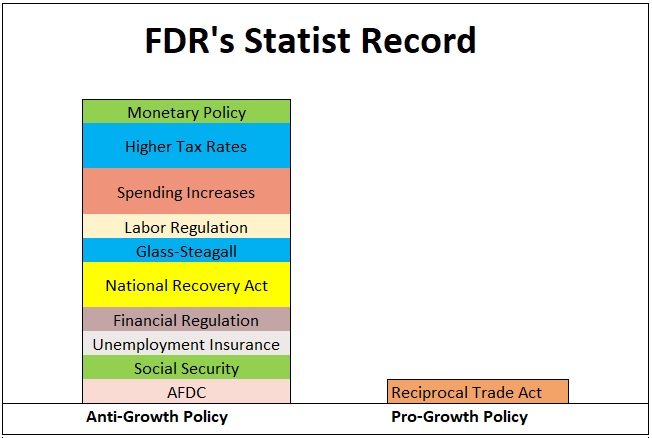
Trade was the only area where he consistently pushed policy in the right direction.
P.S. According to presidential scholars such as Al Felzenberg, President Roosevelt didn’t have firm views on economics and his administration was characterized by haphazard shifts in policy depending on which group of advisors (the reflationists, corporatists, Keynesians, anti-trust zealots, etc) were most influential.
P.P.S. FDR’s Treasury Secretary admitted the failure of the New Deal in 1939, telling a congressional committee that “We are spending more than we have ever spent before and it does not work… I say after eight years of this administration we have just as much unemployment as when we started…and an enormous debt, to boot.”
P.P.P.S. I wrote above that FDR is “probably America’s second-worst president.” I’m hesitant to give a definitive answer, in part because Nixon was so terrible. More important, the wretched track record of Woodrow Wilson (creator of the income tax and Federal Reserve, as well as an odious racist) suggests he may deserve the prize for being the worst of the worst.
Daniel J. Mitchell is a public policy economist in Washington. He’s been a Senior Fellow at the Cato Institute, a Senior Fellow at the Heritage Foundation, an economist for Senator Bob Packwood and the Senate Finance Committee, and a Director of Tax and Budget Policy at Citizens for a Sound Economy. His articles can be found in such publications as the Wall Street Journal, New York Times, Investor’s Business Daily, and Washington Times. Mitchell holds bachelor’s and master’s degrees in economics from the University of Georgia and a Ph.D. in economics from George Mason University. Original article can be viewed here.
Self-Reliance Central publishes a variety of perspectives. Nothing written here is to be construed as representing the views of SRC.

